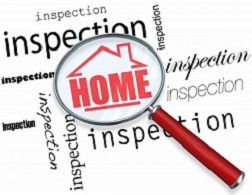Buying Your First Home? Here’s Why You’ll Need to Ensure You Have a Proper Home Inspection
 There’s a whole lot to learn when buying one’s first home, an investment that can bring joy, but sometimes, grief. A competent real estate agent can assist in locating those homes that meet the home buyer’s needs and can advise on factors such as market value of the home and neighborhood services. The agent will help the buyer through the negotiation and purchase process. But the buyer should take responsibility to make sure that the steps below are taken.
There’s a whole lot to learn when buying one’s first home, an investment that can bring joy, but sometimes, grief. A competent real estate agent can assist in locating those homes that meet the home buyer’s needs and can advise on factors such as market value of the home and neighborhood services. The agent will help the buyer through the negotiation and purchase process. But the buyer should take responsibility to make sure that the steps below are taken.
Home Inspection Contingency Included in Purchase Offer
At the point where the buyer finds a home and decides to make an offer, the contract should be written contingent on an acceptable inspection. If serious issues are found, the buyer has the options of requesting certain items to be fixed, to be compensated for the costs of repair, for a lower purchase price or to cancel the contract. Without this contingency, the buyer is bound to the contract without these options and may suffer huge costs.
Selecting the Home Inspector
Reputable and successful home inspectors may be recommended by the real estate agent or friends. The buyer should talk with prospective inspectors and ask for references. Another indication of competency is an affiliation with professional groups such as the American Society of Home Inspectors (ASHI) or the National Association of Home Inspectors (NAHI).
Inspecting the Home
There are potentially many problems in homes that are not visible to the eye. The home buyer that engages a professional home inspector can be assured that major problems will be identified. As an added value, by accompanying the home inspector and asking questions, the first-time buyer can learn about proper maintenance and of possible problems that will not go into the report.
What Will the Home Inspector Do?
The home inspector examines the entire home, both outside and inside, and checks for safety, defects, replacement or repair needs, and potential problems that should be monitored closely. The inspector will then produce a report covering the findings. The inspection generally takes two to three hours and costs between $200 and $500.
What Will Be Inspected?
External inspections will cover the roof, exterior walls, foundation, grading, garage, and may include sprinklers, lawn, porch lights, walkways and driveways as well. Interior inspections will examine the plumbing and electrical systems, HVAC (heating, ventilation and air conditioning), the water heater, kitchen appliances, laundry room, fire safety and bathrooms.
Taking this optional step of completing a home inspection, even with a new home, will be well worth the time and additional cost. It will provide a basis on which to make a more realistic offer and give the buyer the peace of mind of having in-depth knowledge about the house being purchased.

 Congratulations! You have finally closed on your home loan, and you are excited to get moved in. Or, you may have just refinanced your home, and you are excited to enjoy it. Regardless, all of a sudden, you start to get a bunch of junk mail in your mailbox. It can be frustrating to sort through everything, and how did they get your information in the first place?
Congratulations! You have finally closed on your home loan, and you are excited to get moved in. Or, you may have just refinanced your home, and you are excited to enjoy it. Regardless, all of a sudden, you start to get a bunch of junk mail in your mailbox. It can be frustrating to sort through everything, and how did they get your information in the first place?  In these days of low interest rates, it can be a great idea to get into the real estate market and invest in a home. However, if you don’t have the funds saved up to buy a home outright, it may seem like more of a burden than it’s worth. The good news is that you might qualify for a mortgage loan, which tends to come with more favorable terms than a traditional bank loan. Here are three reasons why a mortgage might just be the best money you ever borrow.
In these days of low interest rates, it can be a great idea to get into the real estate market and invest in a home. However, if you don’t have the funds saved up to buy a home outright, it may seem like more of a burden than it’s worth. The good news is that you might qualify for a mortgage loan, which tends to come with more favorable terms than a traditional bank loan. Here are three reasons why a mortgage might just be the best money you ever borrow.